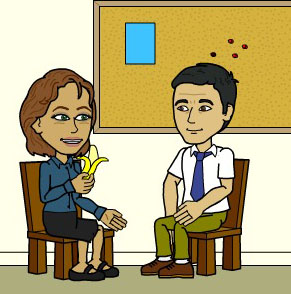Lesson 4
In this lesson, you’ll learn:
VOCABULARY AND PHRASES
- family
- asking about age
GRAMMAR:
- reflexive verbs
- possessive pronouns

G: Marek, ile masz lat?
M: Mam trzydzieści pięć lat, a ty?
G: Ja mam dwadzieścia osiem. Masz rodzeństwo?
M: Tak, mam brata i siostrę. Mój brat ma trzydzieści siedem lat, a moja siostra trzydzieści.
G: Też mam brata.
M: Masz dzieci?
G: Nie, ale mój brat ma syna. Często bawimy się razem.
M: Jesteś dobrą ciocią.
G: Mój ojciec też tak mówi.
M: Twój brat też mieszka we Wrocławiu?
G: Nie, on mieszka w Poznaniu, ale często się widzimy.
|
Ile masz lat? |
How old are you? (literally: How many years do you have?) |
|
|
Mam … lat. |
I’m … years old. |
|
|
rodzeństwo |
siblings |
|
|
dzieci |
children |
|
|
ojciec |
a father |
|
|
ciocia |
an aunt |
|
|
też |
also |
|
|
bawić się |
to play / to enjoy o.s. |
|
|
mówić |
to say/ to speak |
|
|
widzieć |
to see |
|
Reflexive verbs
Reflexive verbs are combined with a pronoun się. It is invariable no matter which person it is. Reflexive verbs are those where action is directed at the doer (“reflected on”). In English they are followed by –self or –selves, but of course, there’s no clear correspondence between Polish and English. Some verbs might be reflexive in Polish that would never be reflexive in English.
|
infinitive |
bawić się |
|
1. person sing. |
bawię się |
|
2. person sing. |
bawisz się |
|
3. person sing. |
bawi się |
|
1 person pl. |
bawimy się |
|
2 person pl. |
bawicie się |
|
3 person pl. |
bawią się |
Się used as each other
Się can also be used in the meaning each other / one another
Widzimy się. – We see each other.
If there is doubt if się means themselves or each other, you can add wzajemnie or na wzajem
Kochają się wzajemnie. (They love each other.)
Zabijają się na wzajem. (They kill each other.)
Possessive pronouns
In the dialogue, you’ve encountered personal pronouns for my/mine and your/yours. In Polish, there’s no distinction between possessive pronouns and possessive adjectives (my-mine), but it’s well compensated by inflection by genders and cases. The table below presents only nominative case.
|
|
masculine |
feminine |
neuter |
plural (non-masculine-personal) |
plural (masculine-personal) |
|
1. person sing. |
mój |
moja |
moje |
moje |
moi |
|
2. person sing. |
twój |
twoja |
twoje |
twoje |
twoi |
|
3. person sing. M |
jego |
||||
|
3. person sing. F |
jej |
||||
|
formal sing. M |
Pana |
||||
|
formal sing. F |
Pani |
||||
|
1 person pl. |
nasz |
nasza |
nasze |
nasze |
nasi |
|
2 person pl. |
wasz |
wasza |
wasze |
wasze |
wasi |
|
3 person pl. |
ich |
||||
|
formal pl. |
Państwa | ||||
Note that jego, jej, ich, Pana. Pani, Państwa are invariable. They are not inflected by gender nor cases, which makes things much easier. Mój, twój, nasz, wasz are inflected in similar way as adjectives. You can check out the full declension in a separate article. But perhaps the right time will come when you learn more about cases.
Related interactive test: Possessive pronouns 1.» take the interactive test
Related interactive test: Possessive pronouns 2.» take the interactive test
Related interactive test: Family.» take the interactive test
Related interactive test: Revision - lesson 4.» take the interactive test
 LearnPolish
LearnPolish